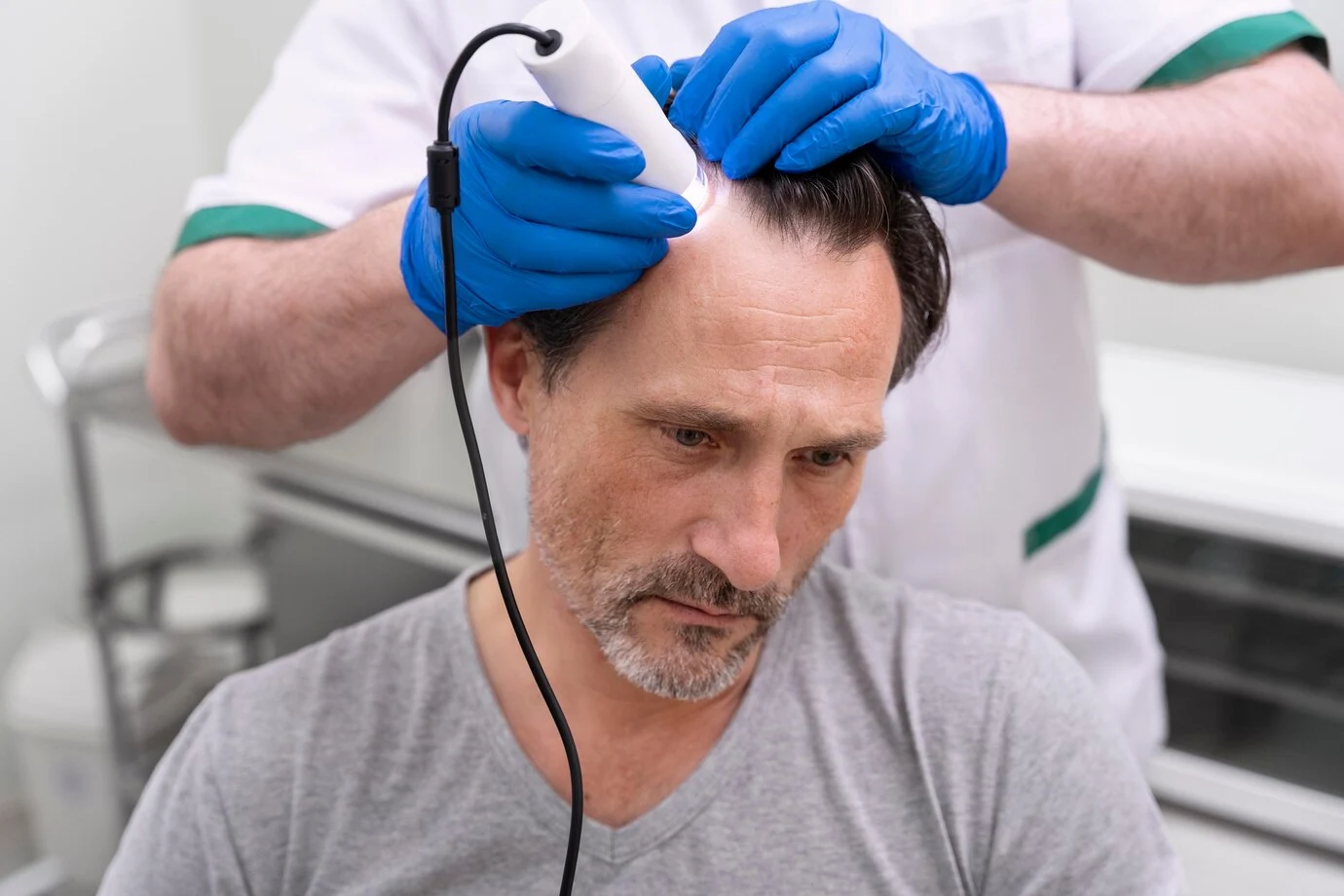When it comes to hair growth, many people are eager to find effective solutions to promote thicker and healthier hair. Betacap, a topical corticosteroid, is often mentioned in discussions about scalp treatments. But does it really help hair grow? Let’s dive into the details, drawing on expert insights, personal experiences, and scientific research.
Table of Contents
ToggleWhat is Betacap?
Betacap contains betamethasone, a potent corticosteroid used to treat inflammatory scalp conditions such as psoriasis and seborrheic dermatitis. These conditions can cause itching, redness, and scaling on the scalp, which may indirectly affect hair health. By reducing inflammation, Betacap helps create a healthier scalp environment.
Can Betacap Promote Hair Growth?
While Betacap is not designed as a hair growth treatment, some users have reported noticing thicker hair after using it. This raises the question: can Betacap indirectly help with hair growth by improving scalp health?
Expert Opinions
Dr. David Lortscher, a board-certified dermatologist, provides some clarity on this issue. He explains, “Betacap (betamethasone) is a topical corticosteroid medication used to treat inflammatory scalp conditions like psoriasis and seborrheic dermatitis. It doesn’t directly promote hair growth, but by reducing inflammation, it can create a healthier scalp environment for existing hair to potentially thrive” (Source: American Academy of Dermatology website).
Sarah Miller, a registered pharmacist, emphasizes the importance of understanding the primary use of Betacap. “Betacap can be a helpful treatment for scalp conditions that might contribute to hair loss. However, it’s not a hair growth medication itself. Consult your doctor about hair growth concerns, as they might recommend other treatments” (Source: Interview with pharmacist).
Christina Jones, a hairstylist, shares her observations from the salon. “While some clients mention thicker hair after using Betacap, it’s not a guaranteed effect. It’s best to focus on healthy hair practices and consult a doctor for hair growth concerns that might have underlying causes” (Source: Interview with hairstylist).
Dr. Angela Chalmers, a trichologist, stresses the importance of a proper diagnosis. “If you’re experiencing hair loss, it’s crucial to get a proper diagnosis from a trichologist. Betacap might address scalp issues that contribute to hair loss, but it won’t directly regrow hair. Discuss hair growth concerns with a specialist for tailored treatment options” (Source: British Association of Dermatologists website).
Understanding the Mechanism
The primary function of Betacap is to reduce inflammation. Inflammatory conditions of the scalp can lead to hair loss or hinder hair growth. By treating these conditions, Betacap can improve the overall health of the scalp, potentially allowing hair to grow better in a healthier environment.
I remember when my friend Emily struggled with scalp psoriasis. Her scalp was often itchy and inflamed, and she noticed her hair thinning in the affected areas. After her dermatologist prescribed Betacap, she diligently applied it as directed. Over time, the redness and itching reduced significantly. While she didn’t notice a dramatic increase in new hair growth, her existing hair looked healthier and thicker, likely due to the improved condition of her scalp.
Scientific Insights
Though there isn’t direct research on Betacap promoting hair growth, studies on corticosteroids provide some context.
- “Corticosteroids” published in the StatPearls website provides an overview of corticosteroids, including potential side effects like hair growth (though the information is broader and not specific to Betacap).
- “Adverse Effects of Corticosteroid Therapy” published in the Journal of Clinical and Aesthetic Dermatology (2009) explores the side effects of corticosteroid therapy, including hypertrichosis (excessive hair growth).
- “Management of Alopecia Areata” published in the Indian Journal of Dermatology (2011) discusses treatment options for alopecia areata, including corticosteroids that might indirectly contribute to hair regrowth in some cases.
- “Scalp Psoriasis: Pathogenesis, Clinical Features, and Treatment” published in the Journal of the American Academy of Dermatology (2019) focuses on scalp psoriasis and treatment options, including corticosteroids like Betacap. While not directly related to hair growth, it provides context on how treating scalp conditions can impact hair health.
Practical Advice for Hair Growth
If you’re considering Betacap for hair growth, it’s important to manage your expectations and understand its primary purpose. Here are some practical tips:
- Consult a Healthcare Professional: Before starting any new treatment, speak with a dermatologist or trichologist to get a proper diagnosis and tailored advice.
- Follow Healthy Hair Practices: Maintain a healthy diet, avoid excessive heat styling, and use gentle hair care products.
- Use Prescribed Treatments Correctly: If you are prescribed Betacap or any other treatment, use it as directed by your healthcare provider.
- Explore Proven Hair Growth Treatments: There are other treatments specifically designed for hair growth, such as minoxidil or finasteride, which may be more effective.
In my own journey with hair care, I’ve found that a holistic approach works best. A few years ago, I experienced significant hair shedding due to stress. I focused on improving my overall health by eating a balanced diet, practicing stress management techniques, and using gentle hair products. I also consulted a trichologist who recommended a suitable treatment plan. Over time, my hair started to look and feel healthier. While I didn’t use Betacap, the comprehensive care approach made a noticeable difference.
Conclusion
Betacap, with its active ingredient betamethasone, is effective in treating inflammatory scalp conditions. While it is not a hair growth medication, improving scalp health can create a better environment for hair to grow. Experts agree that Betacap can help manage conditions that might indirectly affect hair growth, but it should not be relied upon as a primary hair growth treatment.
For those dealing with hair loss or thinning, it’s essential to seek professional advice and consider treatments specifically designed to promote hair growth. Combining medical advice with healthy hair practices can yield the best results.
In the end, healthy hair starts with a healthy scalp. Whether you’re using Betacap or other treatments, taking care of your scalp is a vital step towards achieving the luscious locks you desire.




